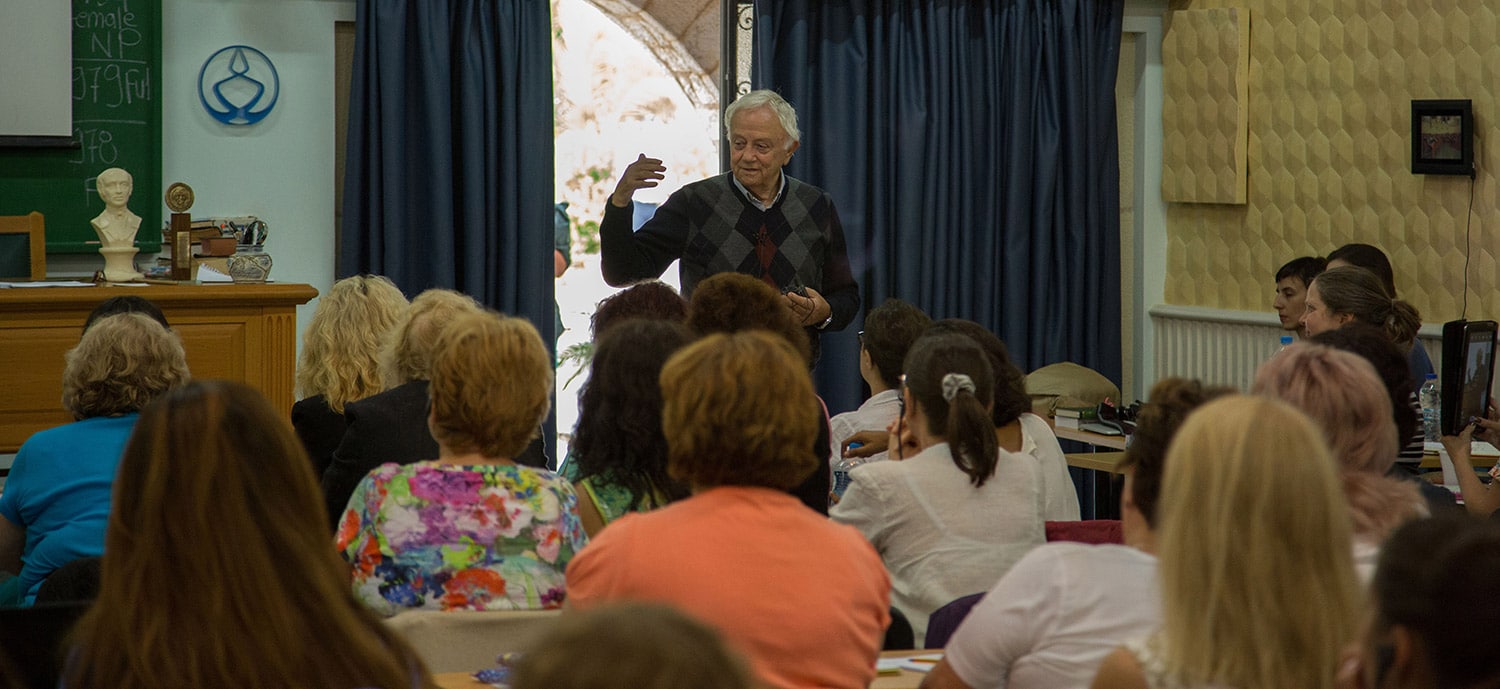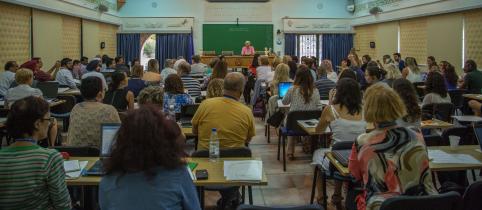The argument of who has the right to practice homeopathy, is an old and difficult to solve, that hangs over homeopathy for more than a century. Do we have to have a solution?
This Journal opens today its pages to all those that would like to express their opinion and their arguments. on this rather complicated and sensitive issue.
Here is some correspondence we received already on this matter.
Medical Doctors versus professional Homeopaths
Medical Doctors versus professional Homeopaths
An old controversy that seeks solution.?
The argument of who has the right to practice homeopathy, is an old and difficult to solve, that hangs over homeopathy for more than a century. Do we have to have a solution?
This Journal opens today its pages to all those that would like to express their opinion and their arguments. on this rather complicated and sensitive issue.
Here is some correspondence we received already on this matter.
I consider it a great shame that the schism still exists between medical homeopaths and the professionally trained homeopaths. In a way the need for doctors to refer to their conventional medical background still reinforces the dominance of the current conventional model when in fact homeopathy is becoming strong enough now to stand on its own. We need, now, to support the building of homeopathic schools in order to provide full homeopathic medical training. The established medical schools are too entrenched in orthodoxy to change for a long time.
Stephen Gordon
ECCH & ICCH General Secretary England
October 13, 1995
My second issue just arrived, yesterday. The subject discussed in the editorial of this issue is without doubt, about a universal problem that concerns the entire homeopathic community. I commend you for once again having brought this subject to everyone’s attention. Nevertheless, having recognized your contribution to this matter does not mean I share your entire views or give you my unconditional support in this area.
Please, don’t misunderstand me. I am a dedicated and fierce supporter of good education. If this is achieved by attending a university, college or whatever – full time, the better. However, the best university educated physician doesn’t necessarily turn out to be the best homeopath.
With all my respects Mr. Vithoulkas, you give the impression in your editorial, that only medical doctors, who study homeopathy, have a God given right to practice this therapy.
I fully agree with you that homeopathic education is in a mess. By the right of your deep knowledge of homeopathy, you are viewed as a leader. By this same virtue, which I am sure you acquired over many years of hard and dedicated work, you are in a position to change the whole education situation, not only in Greece, Europe but also in North America. Alonissos, is far from the majority of the would be students. My view encompasses the belief that if one can not bring the students to Alonissos, then, please “bring” Alonissos to the students.
What is really necessary are many International Academies of Classical Homeopathy, spread throughout the world. Just like the Olympic games which originated in Greece, and now are held all over the world, these academies would be located throughout the world, maybe with the head office in Alonissos. “Let us” work to get this vision “off the ground. ” Then “let us” implement your vision as described in ‘Homeopathy – Medicine of the New Man. ‘
Sincerely,
Henrique A. Pedro
Toronto, Canada
It seems to me that Homeopathic doctors and practitioners are communicating much more than ever before; and at the moment there is a growing together, which may well result in Practitioners working in the National Health Service on a scale not seen before. This is already beginning in a small way.
The act of excluding the people who have taught the people who are now being accepted by doctors, is a bit like the British govenment’s policy of building more roads, to deal with the traffic problem, i. e. it is a policy that is old fashioned and going in the opposite direction to what you would expect. You would expect less roads, more rail, more meetings with doctors not less.
Phil Edmonds
U. K.
As I have been accused many times, that I only support the education for medical doctors I feel compelled to air my opinion concerning this problem in order to prevent misinterpretations and prejudices that have nothing to do with my stand on this matter..
As far as I am concerned I think that the problem should be seen from three different angles.
A. Who has the legal right to practice homeopathy?
1. Each country has laws that dictate the legality of who can prescribe homeopathic medicines and who cannot. Therefore if these laws give the right to a professional homeopath to practice legally in their respective country then I do not think that anyone should interfere with such regulations.
2. In case the country’ s laws do not allow non-medical professionals to practice homeopathy then such laws could be debated. The government should be pressured to change such a law. But such pressure for change should be accompanied by certain regulations and Teaching Facilities relegated to homeopathy and regulated by government edicts.
3. In cases where the law does not allow medical doctors to practice homeopathy, it is almost certain that the medical association of that country or state (as in Sweden and North Carolina vs. George Guess in the U. S.) then such a law should be fought vehemently.
Of course the Medical Association’ s logic is that, “Since in your medical studies you were taught certain disciplines, you were given the right and privilege to practice only those disciplines that you learned and not something else that you have chosen to practice after graduation.
If therefore you want to practice another discipline, then you have to abandon your privilege of practicing medicine, become a lay person and then practice whatever you like, but we will strike you from this medical association. “
This logic is totally unacceptable for me and should be contradicted
B. Who has the moral right to practice homeopathy?
Since homeopathy is not yet taught in official or recognized Institutions, the moral right of who can practice is a serious issue that at the moment is left to the discretion of the individual M. D or professional homeopath that decides to practice. This issue involves more issues than if it was just considered a legal dilemma.
When a doctor or practitioner decides to venture forth and take responsibility for people’ s health, then the public has a right to know what level of knowledge this doctor or practitioner has. The public at the present time has no way of knowing beforehand what that particular individual really knows concerning homeopathy or medicine in general.
This issue has been left to be decided upon solely by the “conscience” of each homeopath, who can be the only judge in this matter. But the question is how many have an acute enough “conscience” to judge correctly or to seek out better training before they feel really ready to start practicing.
I have known doctors to start practicing homeopathy only after a few weekends of instructions and training; they had not even learned the basics, and I have known other doctors who, after years of training, still feel incompetent and hesitant to undertake such a sensitive task as treating chronic diseases with homeopathic remedies.
I have known MD’ s to make claims to outrageous feats – curing cancer or AIDS, etc. and exploiting innocent and naive people searching for a saviour. It is true that sometimes we may have positive results in such severe conditions but this should not be advertised as a possibility/certainty for every case.
I have known doctors that prescribe a host of remedies about which they know nothing, they have no idea what the symptoms of these remedies are, since they have never studied our Materia Medica.
And I have known practitioners to use all kinds of tricks to trap their patients, i. e. using dowsing in order to find the right remedy, antenna homeopathy, intuitional homeopathy, different electronic devices, etc. Most of them prescribe a host of remedies hoping that within this group one may, by chance, find the correct one that will produce curative results.
Where is the golden mean?
Where are the authorities that will enforce the necessary standards for homeopathic education?
This is one of the hottest issues today that seek a solution.
There are several other issues that have to be taken into consideration in this matter. For instance practitioners of Homeopathy many times seem to have better results than half-trained M. Ds but at the same time some other practitioners with meager training in both homeopathic and allopathic knowledge and a dangerous misunderstanding of the whole issue of treating cases are thrown in to the market without any kind of control or test for their medical abilities.
It is true that all claim that homeopathy is harmless in every case but is this entirely true?
What is the moral responsibility of the different governments concerning this issue?
C. Who has the scientific right to practice homeopathy.
MDs are maintaining that they alone have the right to practice as they are trained to understand the pathology of the case, to understand the prognosis, to know the dangers of a mis -diagnosis and a consequent mistreatment especially when urgent measures have to be taken in a severe case.
But on the other hand we know that all cases die under excellent and expert allopathic treatment and we have no research showing what will happen if such cases were left to expert homeopathic treatment.
Not that they will not die, but what about the comfort and the quality of life until the moment of death?
For all these reasons it is understandable that the issue is old and difficult for anyone to solve it or even propose a workable solution, but for all these reasons my policy from the beginning of my teaching career that goes back to 1961 was to train MDs and practitioners together -actually anyone who was allowed to practice legally in their respective countries was accepted- with the logic that if they are allowed to practice they might as well be trained more thoroughly, more correctly, more fully so that they can produce better results.
I was actually the first one in the history of homeopathic education that mixed in the same group MDs with non MDs, and I think I was justified if I see today the good therapeutic results that several of my students have in both groups.



